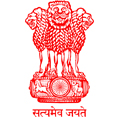Guidelines for Certification
DISABILITY GUIDELINES
As per Section 2(t) of the Persons with Disabilities (Equal Opportunities, Protection of Rights and Full Participation) Act, 1995 "person with disability" means a person suffering from not less than forty per cent of any disability as certified by a medical authority. As per Section 2 (p), "medical authority" means any hospital or institution specified for the purposes of this Act by notification by the appropriate Government. In pursuance of this, State Governments/UT administrations are required to notify the medical authorities to issue disability certificate.
Persons with Disabilities (Equal Opportunities, Protection of Rights and Full Participation) Rules, 1996 required that a disability certificate shall be issued by a medical board duly constituted by the Central/State Government. This required a lot of time and travel by persons with disabilities to the district headquarters. Often full medical boards are not able to meet on a given day causing yet more delay and inconvenience. Therefore Ministry of Social Justice and Empowerment has amended the Persons with Disabilities Rules, 1996 in December 2009 with a view to simplify the process of issuing disability certificates. A doctor can now assess and issue the certificate even at PHC in case of visible disabilities such as amputations, complete paralysis, and blindness. A specialist doctor can do so in other cases. For multiple disabilities however more than one specialist will be necessary.
Ministry of Social Justice and Empowerment has issued guidelines for evaluation of locomotor, visual, hearing, mental retardation and multiple disabilities vide Notification No. 16-18/97-NI I dated 01.06.2001 and mental illness vide Notification No. 16-18/97-NI I dated 18.02.2002.

